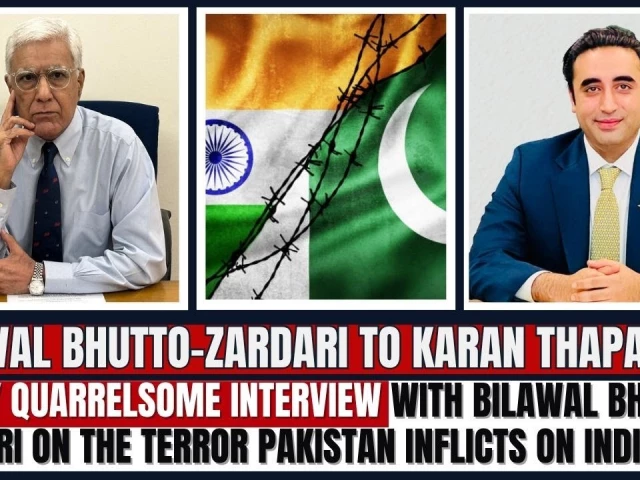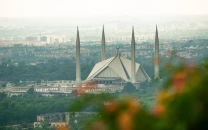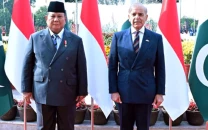Bilawal urges Indian youth to reject hate, war rhetoric from govt
PPP chairman appeals to Indians to reject disinformation in interview with Karan Thapar

Pakistan Peoples Party (PPP) Chairman Bilawal Bhutto Zardari urged the people of India to avoid falling prey to disinformation and hate-mongering, stressing that it is easy for the current generation to talk about war.
"I just want to tell the people of India that they must avoid disinformation and hate mongerers. It is easy for this generation to talk about war and tell you that every Pakistani is a terrorist, every Pakistani is your enemy; that is not true," he appealed in an interview with Indian journalist Karan Thapar on Wednesday.
Bilawal categorically rejected India's claims of Pakistani involvement in terrorism, labelling them as propaganda. "Pakistan does not willingly permit groups you mentioned or any group to conduct terrorist attacks outside of Pakistan but also within Pakistan," he asserted.
In April, an attack in Pahalgam — a popular tourist destination — left 26 tourists dead and over a dozen injured after unidentified gunmen opened fire. India immediately blamed Pakistan for the incident. However, Pakistan categorically rejected the Indian blame.
Read More: PM offers India neutral Pahalgam probe
Addressing the issue of terrorism within the country, the PPP chairman recalled the immense toll Pakistan has suffered, stating, "We have, as you're well aware, faced the brunt of terrorism over the past many decades. Pakistan is fighting and has been fighting the largest inland war against terrorism."
He added, “We've lost 92,000 lives altogether. Just last year, we lost more than 1,200 civilian lives in over 200 different terrorist attacks. At the rate at which terrorist attacks are taking place this year alone, if they continue at this pace, it will be the bloodiest year in Pakistan's history.”
A Very Quarrelsome Interview With Bilawal Bhutto-Zardari ... https://t.co/btMDYD8PPZ via @YouTube https://t.co/wCUDZPO22f
— BilawalBhuttoZardari (@BBhuttoZardari) July 9, 2025
Bilawal acknowledged the emotional cost, saying, “I, too, am a victim of terrorism. I feel the pain of the victims of terrorist attacks. I understand the trauma that their families are experiencing in a way more than many others can ever imagine.”
Reflecting on Pakistan’s efforts to combat terrorism, he noted the military actions taken in South Waziristan and later in North Waziristan over the years. “Most recently, we went through a rigorous FATF process with the international community endorsing Pakistan's actions against said terrorist groups,” he shared.
Bilawal reiterated Pakistan’s offer for an international probe into the Pahalgam attack in India, saying, “Immediately after that accusation by the Indian government, the prime minister of Pakistan publicly stated that Pakistan is willing to be part of any impartial international inquiry into the incident because our hands are clean.” However, he said, India rejected the offer.
Following Indian accusations, Prime Minister Shehbaz Sharif offered a “neutral, transparent, and credible” investigation into the Pahalgam attack.
PM firmly rejected India’s “baseless” attempt to link Pakistan to the incident, emphasising that no evidence had been provided to support the allegations.
Also Read: India suspends Indus Waters Treaty
Bilawal stated the need for mutual cooperation between Pakistan and India on counter-terrorism, adding, "I'd like to see the day where India and Pakistan engage in comprehensive dialogue, which should also include the issue of terrorism so we can collectively combat this menace."
The PPP chairman also recalled the 2007 Samjhota Express attack, where 40 Pakistani citizens lost their lives on Indian soil, questioning why there had been no convictions. "We can't ignore saffron terror on one side and then hold another standard by which Pakistan is judged," he said.
Highlighting the role of India in fostering terrorism in Pakistan, he referenced the case of Kulbhushan Jadhav, an Indian spy arrested in Balochistan. “Most recently, the Jaffar Express attack can be directly linked to facilitators in your intelligence agency," he remarked.
Bilawal also raised concerns about India’s plans to cut water supplies to Pakistan, calling it a violation of humanitarian principles.
“Indian Prime Minister and your government are threatening to cut off the water supply to 240 million people of Pakistan. This goes against everything it is to be Indian. It goes against the philosophy of Gandhi. It goes against all we've been taught about a secular India."
Despite these challenges, he reiterated Pakistan's desire for peace. "We want peace. We can talk together and sort out all our issues," he concluded.
For over six decades, India and Pakistan have cooperatively managed the waters of the Indus River system, a vital resource for both nations. Despite enduring conflicts, the Indus Waters Treaty (IWT) of 1960 has remained a cornerstone of their bilateral relations, facilitating shared access to water resources.
However, recent developments strained this longstanding agreement. In the wake of a deadly attack in Pahalgam, Indian Illegally Occupied Jammu and Kashmir (IIOJK), which resulted in 26 tourist fatalities, India announced the suspension of the IWT.




















COMMENTS
Comments are moderated and generally will be posted if they are on-topic and not abusive.
For more information, please see our Comments FAQ